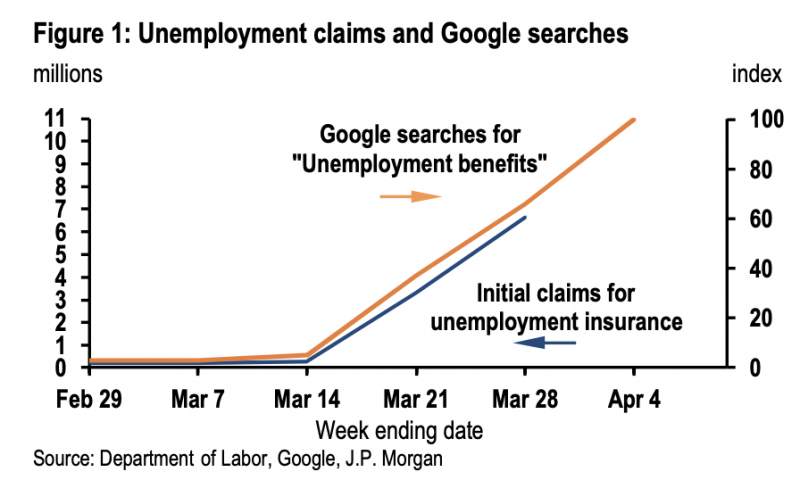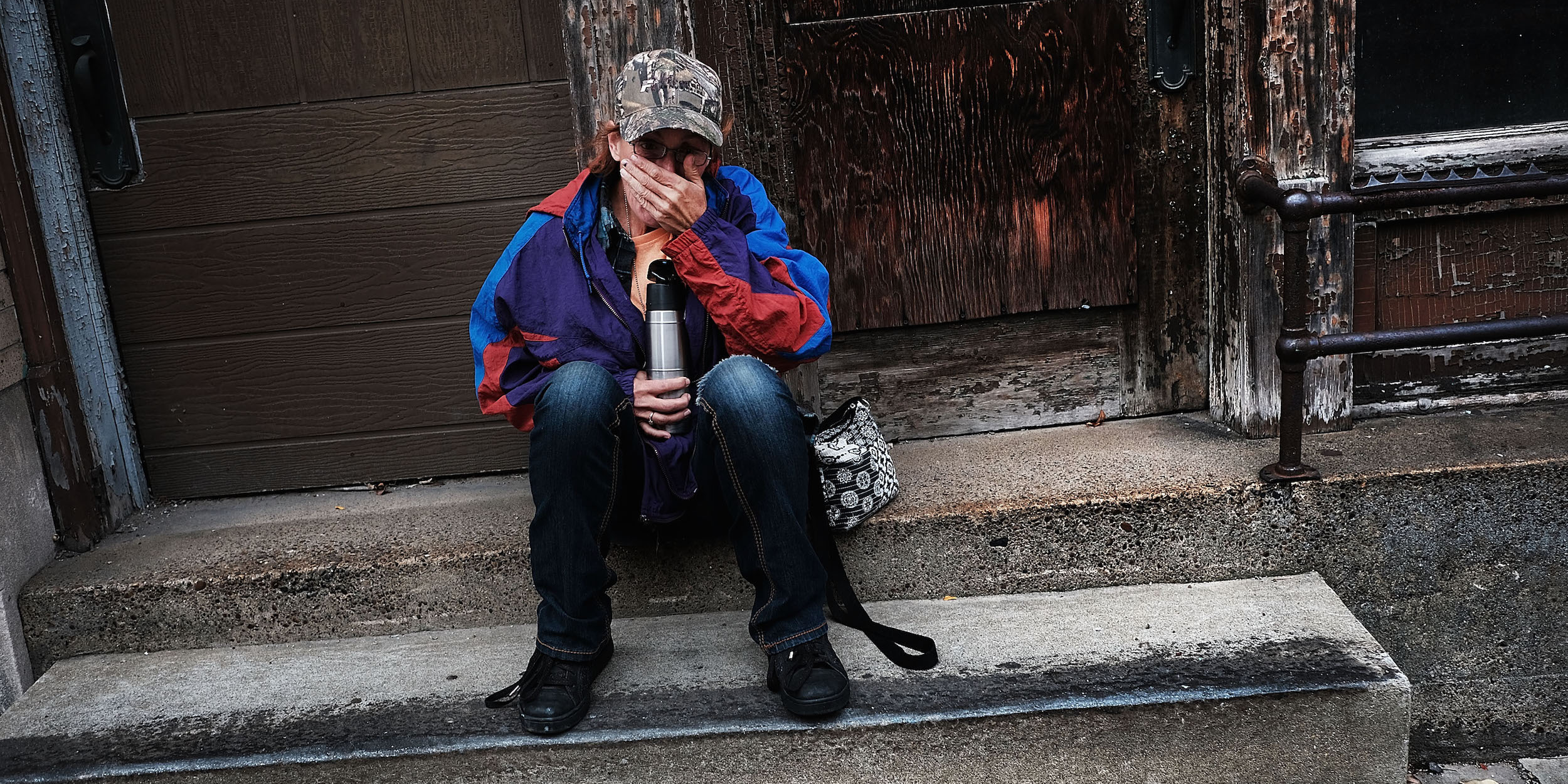-
JPMorgan estimates that 7 million Americans will file for unemployment benefits next week, according to a Friday note from economist Jesse Edgerton.
-
The estimate comes after a brutal March jobs report that showed employers slashed 701,000 jobs in March.
- It also comes after 10 million Americans filed for unemployment in the last two weeks, an unprecedented number.
- Visit Business Insider’s homepage for more stories.
JPMorgan expects the staggering job losses seen as the coronavirus pandemic rages on in the US will continue for another week.
Next week, an estimated 7 million Americans will file for unemployment insurance benefits through the week ending April 4, JPMorgan economist Jesse Edgerton wrote in a Friday note.
"The number of workers in industries directly affected by COVID-19 is massive, and Google data suggest that more people are searching for information on unemployment benefits right now than in either of the last two weeks," Edgerton wrote.

The new record estimate comes after two weeks of eye-popping jobs data. On Friday, the Labor Department reported that the US lost 701,ooo jobs in March, more than economists expected. The report also only included data before March 14, leaving out two key weeks of job losses.
In the last week of March, a record 6.6 million Americans filed for unemployment benefits, and in the previous week, 3.3 million also filed. That means so far, nearly 10 million people have been laid off and sought assistance amid the coronavirus pandemic.
JPMorgan sees more evidence that these numbers will build than decline next week. In February, there were 50 million workers in industries such as food services, retail, and leisure and hospitality affected by COVID-19 shutdowns, and it's likely that the impact will spread beyond those sectors, according to the report.
In addition, more states have increased social distancing guidelines over the last week, which would likely translate into more layoffs and people filing for unemployment, the report said. Daily Google searches for the words "unemployment benefits" are also higher than last week, Edgerton said, and in the past have actually under-represented jobless claims numbers.
